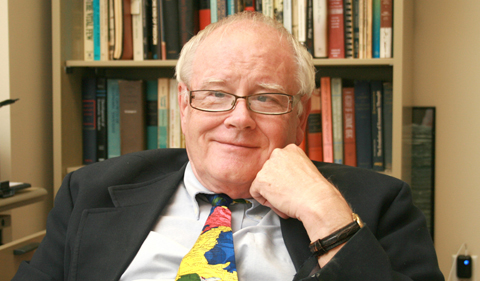Jason Riley quotes Dr. Richard Vedder, Distinguished Professor Emeritus of Economics at Ohio University, in a Washington Street Journal column headlined “Think College Is Expensive? Wait Until It’s Free.”
…The more college graduates, the better, right? And if the college-educated make our society more prosperous in the long run, what’s wrong with increasing government subsidies to cover everyone’s tuition costs?
Well, plenty, according to Richard Vedder, an economic historian at Ohio University whose new book on higher education, “Restoring the Promise,” is due out later this year. It’s a follow-up to his 2004 tome, “Going Broke by Degree,” and it argues that federal subsidies aren’t the solution to rising college costs—quite the opposite.
I called Mr. Vedder this week to get his take on the free-tuition fad. He said college costs have risen whenever student aid was made more generous. He doesn’t expect it to be any different this time. Tuition is only about 20% of the total cost of attending college. If tuition is subsidized, he expects colleges will raise nontuition costs.
“I’ve come out very strongly against free college on a whole variety of grounds,” Mr. Vedder said. “But the most important is that a majority of people going to college are not poor. Even at state universities, a majority of the students are from moderately affluent, upper-middle-class families.”
But doesn’t a college education help lift the prospects of poor students who attend? Sometimes, said Mr. Vedder, but you have to graduate first. “Forty percent of our kids who go to college don’t graduate. We have a tremendous dropout rate, much bigger than the high-school dropout rate. These kids are saddled with a certain amount of debt and their earnings prospects are barely equal to that of a high-school grad.”

















Comments